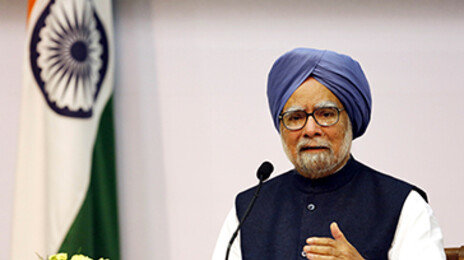On Mother's Day 2), it's customary * to speak about the sacrifices our mothers made to improve our lives. But mothers also deserve credit for the pivotal role they've played in the story of human evolution. Prehistoric mothers did nothing less than seed the development of our species' remarkable intelligence.
The story begins at least two million years ago, when our brains started to grow larger, eventually making humans the most cognitively advanced species on earth. This evolution was not without its difficulties, particularly for mothers. That's because, some five million to seven million years ago, soon after the human lineage branched * from the ancestors of chimpanzees, another peculiarity increasingly came * to mark our progenitors *: walking upright on two legs, or bipedalism *.
The evolution of bipedalism gradually altered our ancestors' skeletons. By the time brain size began trending upward, the shape of the human pelvis had changed to accommodate the muscle attachments that facilitated * walking (and running) in a more vertical posture. As a result, parts of the birth canal narrowed, making the passage of big-brained infants increasingly difficult.
The combination of big brains and constricted * birth canals was an obstetrical problem * for early mothers and no doubt led to high rates of maternal and infant mortality. The infants who survived were the ones whose heads were small enough to squeeze through * narrowed birth canals, but to thrive outside the womb, human development favored * big brains. And so natural selection 3) encouraged the early birth of human fetuses, before they had finished gestating *. For that reason, our babies are born in immature, helpless states compared with those of the apes.
Had it not been for the natural selection of enlarged brains, our species would have evolved in a completely different direction. There would be no theory of relativity, no knowledge of "entangled" particles or the human genome 4); we'd have no great art, music or novels. The excruciating * pain and trauma of childbirth are the cost our species has paid for its fancy cognition. And mothers continue to pay the debt.
But that's hardly all prehistoric mothers gave us. They also may well have touched off * the evolution of language from the sounds they made to reassure their helpless infants. Baby chimpanzees, after all, can cling to their mothers' hairy chests and contentedly ride along, nursing * on demand. But human infants, born immature, lack that dexterity. Before the advent of devices like baby slings, the burden of carrying helpless infants presented a quandary * for early mothers as they foraged for food and water.
To accomplish their tasks, ancestral moms would at times have needed to put their babies down, and these interruptions in physical contact would have been as distressing for infants then as they are now. It's very likely that mothers began to use special vocalizations to reassure and quiet their infants. These vocalizations were the origin of the more complicated lullabies and baby talk, sometimes called "motherese *," that exist today in nearly all human cultures, but which are totally absent among chimpanzees.
Motherese helps infants learn the rhythms and rules of their native speech through simple vocabulary, extensive repetition, exaggerated vowels, high tones and slow tempo. The road from mothers' reassuring vocalizations to the first speech would have been a long one, but these interactions between prehistoric mothers and infants may very well have paved the way for the emergence of spoken words.
Many linguists think that the first human language was very simple and probably consisted mostly of nouns. But to what would the first words have referred? Kin, foods, predators, tools and weather have all been suggested.
I suspect that one of the first words invented was the equivalent of "Mama." Surely, maturing infants, then as now, would have sought a name for the being who provided their first experiences of warmth, love and reassuring melody.
■ 돋보기
미국에서는 5월 두 번째 일요일(올해는 14일)이 어머니날입니다. 어머니날 뉴욕타임스에 실린 이 글은 인류의 진보가 여성의 산고(産苦)에 얼마나 빚지고 있는지를 인류학적 유전학적으로 설명한 글입니다.
대부분의 포유류 수컷은 여러 마리의 암컷과 짝짓기를 하고 새끼를 잘 돌보지 않는 특성을 지니고 있습니다. 인간의 모성(母性)도 유전학적 특질과 관련해 논의해볼 수 있을 것입니다.
모든 여성에게는 모성이 본성처럼 잠재되어 있다는 믿음이 있습니다. 사람들은 어머니에게 헌신적인 보살핌, 희생, 배려, 무조건적인 사랑을 기대합니다. ‘여성은 약하나 어머니는 강하다’ ‘모성은 본능이다’ 같은 말도 있습니다.
미식축구선수 하인스 워드의 어머니를 보세요. 영화 ‘말아톤’의 주인공 어머니도 마찬가지입니다. 모성의 신화는 시대를 불문하고 흔들리지 않는 사회적 믿음으로 자리 잡고 있습니다.
그러나 일부 페미니스트는 자신의 삶을 돌보지 않고 자식만을 위해 헌신과 희생을 하는 삶이 절대적 미덕으로 간주되고, 모성의 본성인 양 당연시되는 데 대해 의문을 제기합니다. 어머니들의 헌신을 너무 당연한 의무로 인식함으로써 여성이 죄책감이나 부담감 때문에 한 인간으로서의 삶을 선택하고 즐기는 데 제약을 받게 된다는 것이죠.
모성은 유전학적으로 결정된 본능일까요. 아니면 오랜 세월에 걸쳐 사회적으로 형성된 것일까요. 자신을 희생하는 무한한 사랑으로 자식을 키우는 어머니도 아름답고, 남성과 대등한 인간으로서 개인의 행복을 추구하는 삶도 당당합니다. 둘 다를 조화롭게 결합하는 것이 불가능한 일은 아닐 것입니다.
황호택 논설위원
☞자세한 주해는 이지논술 사이트를 참고하세요.
뉴욕타임스 >
-

e글e글
구독
-

금융팀의 뱅크워치
구독
-

글로벌 포커스
구독
-
- 좋아요
- 0개
-
- 슬퍼요
- 0개
-
- 화나요
- 0개
![[뉴욕타임스로 논술을 잡아라]The Culture Of Nations](https://image.donga.com/donga_v1/images/img_default.png)



댓글 0